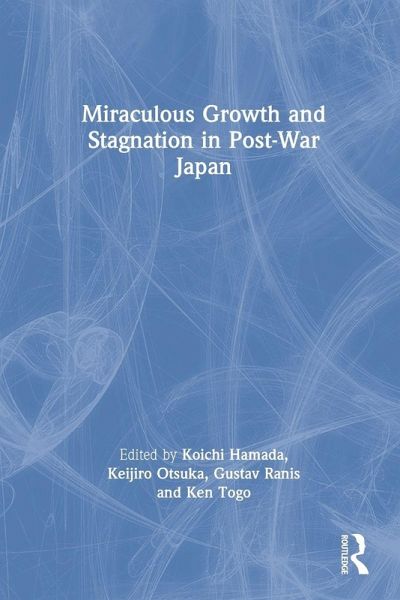Koichi Hamada is the Tuntex Professor of Economics at Yale University, where he specializes in the Japanese Economy and International Economics. Professor Hamada has an LLB, an MA in Economics from the University of Tokyo and an MA and PhD in Economics from Yale University. In Japan, he participated in many policy committees at the Ministry of Finance, MITI, the Economic Planning Agency and other ministries and was one of the few who applied the methodology of "Law and Economics" to Japan's legal system in the 1970s. Professor Hamada was the founding President of the Japan Law and Economics Association in 2003. Keijiro Otsuka received his BA in agricultural sciences, Hokkaido University in March 1971, MA in economics, Tokyo Metropolitan University in March 1974 and PhD in economics, University of Chicago in March 1979. He is currently Visiting Professor at the National Graduate Institute for Policy Studies (April 2001 to present). Currently he is associate editor of Economic Development and Cultural Change and president of the International Association of Agricultural Economists. Gustav Ranis was the Henry R. Luce Director of the Yale Center for International and Area Studies from 1996 to 2004. He was a Carnegie Corporation Scholar from 2004 to 2006, Director of the Economic Growth Center at Yale from 1967 to 1975, Assistant Administrator for Program and Policy at USAID from 1965 to 1967, and Director of the Pakistan Institute of Development Economics from 1958 to 1961. He has worked in China, Colombia, Ghana, Indonesia, Mexico, and Taiwan, among others. Professor Ranis has more than 20 books and 300 articles on theoretical and policy-related issues of development to his credit. Ken Togo is Professor in the Faculty of Economics, Musashi University, Tokyo, and Adjunct Lecturer of the Graduate School of International Cooperation Studies, Kobe University, Kobe, Japan. He received his PhD from Yale. He was also Research Fellow of Economic Planning Agency, Government of Japan (1998-1999) and Visiting Fellow of Economic Growth Center, Yale University(2003-2004). He was previously with the Foundation for Advanced Studies in Development (FASID), Tokyo.






